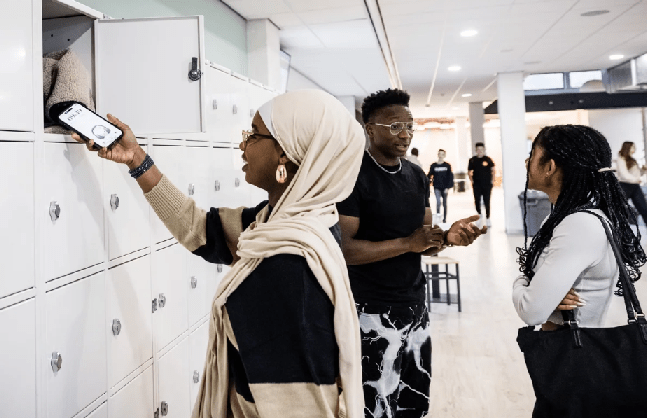Learning improved after smartphone ban in Dutch schools: government study

According to a government study in the Netherlands, the introduction of a ban on the use of smartphones in schools has had a positive effect on the learning environment, despite initial dissatisfaction. About this informs The Guardian.
National guidelines, which came into force in January 2024, called for restrictions on the use of mobile phones in classrooms. Almost all educational institutions complied with these requirements: about two-thirds of secondary schools ask students to leave their phones at home or put them in lockers, and in 20% of cases phones are handed in before classes.
As part of the research, 317 heads of secondary schools, 313 representatives of primary schools were interviewed, and 12 focus groups were held with the participation of teachers, students and parents. In secondary schools, 75% of respondents noted an improvement in students’ ability to concentrate, 59% — an improvement in the social atmosphere, and 28% noted an increase in academic results.
Researcher Alexander Krepel from the Konastamma Institute emphasized that the changes primarily affected the interaction between students:
“Now it’s impossible to discreetly take a photo of someone in class and send a photo in a WhatsApp group, so social safety has increased. Especially during breaks between classes, students used to be on their phones, but now they have to communicate. Maybe they even fight more often, but schools, teachers and students themselves are quite happy that the atmosphere has become better.” he said.
Freya Sixma, spokeswoman for the VO-raad Council of Secondary Education, noted that despite the initial reluctance and numerous questions from schools, teachers, students and parents, the result turned out to be positive:
“At first, there were a lot of protests from schools, teachers, students, parents, a lot of questions about how it would all work. But now you can see that everyone is actually quite happy.”
In specialized schools where smartphones can be used as an auxiliary learning tool, almost half of the institutions also evaluated the implemented policy positively or very positively. In primary schools, the impact of phones before the ban was minimal, but about 25% of schools positively assessed the new rules.
The Minister of Primary and Secondary Education, Marielle Paul, noted that national guidelines have helped to strengthen discipline in classrooms:
“Teachers and school leaders noted that if an individual teacher wanted to ban smartphones in their classroom, it always became a matter of debate. Less experienced teachers found it more difficult to implement.”





